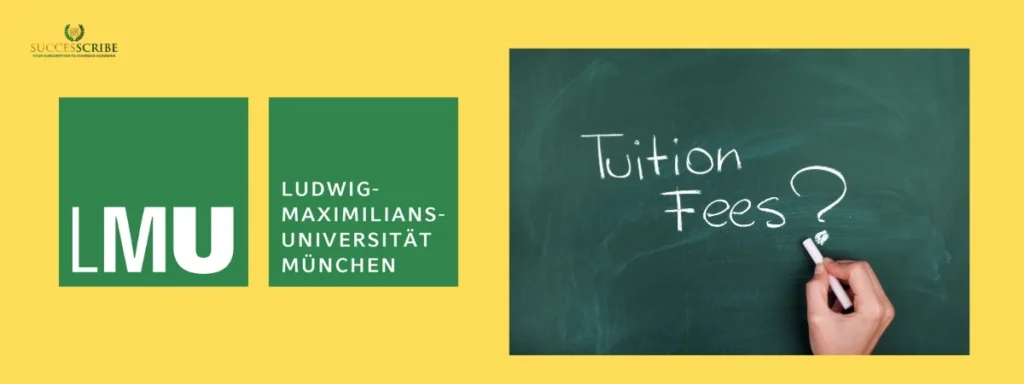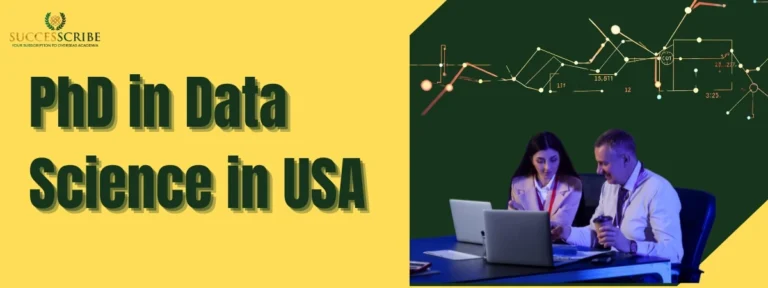Ludwig Maximilian University of Munich (LMU) is one of Europe’s oldest and most prestigious universities. Established in 1472, it is located in the heart of Munich, Bavaria, Germany. With over 52,000 students and a strong international presence, LMU excels in academic teaching, cutting-edge research, and international collaborations.
Key Highlights
| Category | Details |
| Established | 1472 |
| Type | Public research university |
| Location | Munich, Bavaria, Germany |
| Campus Setting | Urban (multiple locations throughout Munich) |
| Number of Faculties | 18 |
| Total Students | Approximately 52,000 |
| International Students | Over 9,000 (17% of student body) |
| Academic Staff | More than 4,700 |
| Language of Instruction | German (primarily), English (select programs) |
| Endowment | €900 million (approximate) |
| University President | Matthias Tschöp |
| Notable Alumni | 43 Nobel laureates, including Max Planck, Werner Heisenberg, and Thomas Mann |
LMU History and Overview
Founded in Ingolstadt in 1472 and relocated to Munich in 1826 by King Ludwig I of Bavaria, LMU has a rich academic tradition spanning more than five centuries. It has played a significant role in German intellectual and cultural life, contributing to scientific advancements and social reform. LMU’s alumni include Nobel Prize winners, politicians, scientists, and philosophers such as Max Planck, Werner Heisenberg, and Pope Benedict XVI. The university is structured into 18 faculties and over 200 institutes, emphasizing interdisciplinary learning and research.
Ludwig Maximilian University of Munich: Acceptance Rate

LMU is a highly competitive institution. Admission is primarily based on academic merit, program-specific requirements, and language proficiency. The overall acceptance rate is estimated at approximately 10% for undergraduate programs and ranges between 10% and 15% for international master’s programs.
Top Master’s Acceptance Rates

| Program | Acceptance Rate |
| MSc Computer Science | 12% |
| MSc Economics | 15% |
| MSc Data Science | 10% |
| MSc Molecular Biology | 13% |
| MSc Neuro-Cognitive Psychology | 11% |
Undergraduate Acceptance Rates by Faculty
It’s important to note that many undergraduate programs at LMU implement the “Numerus Clausus” (NC) system, which sets minimum grade requirements for admission based on the Abitur (German high school diploma) or equivalent qualifications. For international students, this typically translates to specific GPA requirements and additional qualifications.
For the most competitive programs, such as medicine and psychology, applicants may need to pass additional entrance examinations or have exceptional academic records. In the medical faculty, for instance, only about 5-8% of applicants secure a place, making it one of the most competitive programs in Germany.
| Faculty | Approximate Acceptance Rate |
| Medicine | 5-8% |
| Law | 15-20% |
| Business Administration | 25-30% |
| Psychology | 10-15% |
| Biology | 30-35% |
| Economics | 35-40% |
| Languages & Literature | 40-45% |
| Philosophy | 45-50% |
| History | 40-45% |
Ludwig Maximilian University of Munich Acceptance Rate for Master’s
For international master’s applicants, the competition is particularly intense. LMU receives approximately 12,000-15,000 international applications for master’s programs annually, with available places numbering in the low thousands across all programs. This creates a highly competitive environment, particularly for programs taught in English, which tend to attract the largest number of international applicants.
| Master’s Program | Approximate Acceptance Rate |
| Management (M.Sc.) | 10-15% |
| Economics (M.Sc.) | 20-25% |
| Computer Science (M.Sc.) | 25-30% |
| Physics (M.Sc.) | 30-35% |
| Biology (M.Sc.) | 25-30% |
| Psychology (M.Sc.) | 8-12% |
| International Health (M.Sc.) | 15-20% |
| Political Science (M.A.) | 20-25% |
| Media and Communication (M.A.) | 15-20% |
| Philosophy (M.A.) | 35-40% |
Applicants with high GPAs, strong letters of motivation, and relevant research or work experience have a better chance of admission, particularly in competitive programs.
Rankings and Reputation of Ludwig Maximilian University of Munich

LMU has a reputation as one of Germany’s elite universities and is consistently ranked among the top institutions in Europe. It is known for excellence in research, especially in physics, medicine, humanities, and social sciences. LMU collaborates with global partners, including the Max Planck Society and the Helmholtz Association.
| Ranking Body | 2025 Position |
| Times Higher Education | #38 |
| U.S. News Global Universities | #53 |
| Academic Ranking of World Universities (ARWU) | Top 50 |
| National Rank (Germany) | #2 |
LMU also ranks within the top 100 globally in disciplines such as Medicine, Physics, Philosophy, and Psychology.
LMU QS Ranking
In the QS World University Rankings 2025, LMU is ranked:
- #59 in the world
- #2 in Germany
- Top 100 in Computer Science, Medicine, and Life Sciences
In subject-specific rankings, LMU excels in:
- Philosophy: Top 30
- Psychology: Top 50
- Medicine: Top 50
- Physics and Astronomy: Top 100
Ludwig Maximilian University Munich: Top Courses

LMU offers over 300 degree programs at undergraduate, postgraduate, and doctoral levels. The university is known for its strong programs in the natural sciences, life sciences, economics, humanities, and social sciences.
Top Academic Programs
| Program | Degree Level | Language |
| Computer Science | BSc, MSc | English & German |
| Data Science | MSc | English |
| Molecular Biology | MSc | English |
| Philosophy | BA, MA | German |
| Business Administration | BSc | German |
| Neuro-Cognitive Psychology | MSc | English |
| Medicine | Staatsexamen | German |
Ludwig Maximilian University of Munich: English-Taught Master’s Programs
LMU offers more than 30 master’s programs taught in English to accommodate international students. These programs combine high academic standards with research opportunities.
Popular English-Taught Programs
- MSc in Data Science
- MSc in Computer Science
- MSc in Logic and Philosophy of Science
- MSc in Molecular and Cellular Biology
- MSc in Theoretical and Mathematical Physics
- MSc in Neurosciences
All programs require English proficiency (IELTS 6.5 or TOEFL 90+). Some programs may also require GRE scores.
Top Bachelor’s Programs
Although most bachelor’s programs at LMU are taught in German, they attract international students proficient in the language.
Notable Bachelor’s Programs
- BSc in Biology
- BA in Philosophy
- BSc in Business Administration
- BA in History
- BSc in Physics
- BA in Political Science
Top Master’s Programs
LMU’s master’s degrees are recognized worldwide and provide solid career prospects and research opportunities.
Most Competitive Programs
| Program | Duration` | Language |
| MSc Computer Science | 2 years | English |
| MSc Data Science | 2 years | English |
| MSc Economics | 2 years | English |
| MSc Molecular Biology | 2 years | English |
| MSc Psychology | 2 years | German/English |
LMU: Academic Structure
The academic system at LMU is divided into 18 faculties:
- Faculty of Catholic Theology
- Faculty of Protestant Theology
- Faculty of Law
- Faculty of Business Administration
- Faculty of Economics
- Faculty of Medicine
- Faculty of Veterinary Medicine
- Faculty of History and the Arts
- Faculty of Philosophy, Philosophy of Science and the Study of Religion
- Faculty of Psychology and Educational Sciences
- Faculty of Cultural Studies
- Faculty of Languages and Literatures
- Faculty of Social Sciences
- Faculty of Mathematics, Informatics and Statistics
- Faculty of Physics
- Faculty of Chemistry and Pharmacy
- Faculty of Biology
- Faculty of Geosciences and Environmental Sciences
Ludwig Maximilian University of Munich: Tuition Fees

Ludwig Maximilian University of Munich (LMU) maintains its tradition of offering affordable higher education by not charging tuition fees for most undergraduate and consecutive master’s programs. However, students are required to pay a semester contribution, which supports student services.
| Fee Type | Amount (per semester) | Notes |
| Tuition Fee (UG & consecutive PG programs) | €0 | No tuition fee for public university programs |
| Basic Semester Contribution | €85 | Paid to Munich Student Union (Studierendenwerk München Oberbayern) |
| Semester Ticket Fee | €0 (as of 2025) | Discontinued; LMUcard no longer valid for public transport in Munich |
Tuition Fees: Structure
One of the key advantages of studying at Ludwig Maximilian University of Munich (LMU) is its affordability. As a public university in Germany, LMU does not charge tuition fees for most undergraduate and consecutive master’s degree programs, including for international students.
| Program Type | Tuition Fees (per semester) | Remarks |
| Undergraduate (Bachelor’s) Programs | €0 | Tuition-free for all students, including non-EU/EEA |
| Consecutive Master’s Programs | €0 | Tuition-free if continuing in the same subject or related field |
| Doctoral Programs | €0 | No tuition fee; minimal enrollment and semester contribution applies |
| Executive & Professional Master’s | €6,000 – €45,000 per year | Fees vary by program (e.g., Executive MBA, Media Management, etc.) |
Mandatory Semester Contribution
While there is no tuition fee for most programs, students are required to pay a semester contribution, which covers administrative costs, student services, and access to campus facilities.
| Component | Amount | Details |
| Basic Student Union Fee | €85.00 | Supports dining halls, housing services, psychological counseling, etc. |
| Semester Ticket Fee | €0 (as of 2025) | Discontinued; LMUcard no longer functions as a valid MVV public transport pass |
| Total per semester | €85.00 | Mandatory for all enrolled students |
Tuition Fees for Executive/Specialized Programs
LMU offers several high-end, fee-based programs typically in collaboration with industry partners. These programs are designed for working professionals or international applicants looking for executive-level education.
| Program | Tuition Fee (approx.) | Duration |
| Executive MBA in Innovation & Business Creation | €39,000 – €45,000 | 18 – 24 months |
| MSc Media, Management & Digital Technologies (MMT) | €6,000 – €9,000 | 2 years |
| LL.M. in German and European Law | €6,000 | 1 year |
These programs are usually taught in English and have separate application processes, deadlines, and admission requirements.
Scholarships for International Students at LMU Munich

Ludwig Maximilian University of Munich (LMU) is committed to academic excellence and inclusivity. For international students who require financial assistance, LMU—along with national and state-level organizations offers a variety of scholarships to support both undergraduate and postgraduate education. These scholarships are based on merit, financial need, or academic achievement.
LMU-Specific Scholarships
These scholarships are provided directly by LMU and are available for students enrolled in various academic programs.
| Scholarship Name | Eligibility | Benefit | Benefit |
| Oskar-Karl-Forster Grant | International students with financial need | Reimbursement for books and materials | Available once per study program |
| LMU Completion Grant | International students in final semester | One-time financial aid (varies) | To support students nearing completion |
| LMU Emergency Fund | Students in urgent financial crisis | One-time emergency support | Requires explanation and financial documentation |
🇩🇪 National-Level Scholarships (Germany-Wide)
These scholarships are open to both German and international students and are coordinated through government-supported or private foundations
| Scholarship | Funding Body | Stipend | Eligibility Criteria |
| Deutschlandstipendium | Federal Government + LMU | €300/month for 1 year | High-achieving students; all nationalities |
| Bavarian State Scholarship | State of Bavaria | Varies (€400–€850/month) | Financial need + academic merit; only for selected countries |
| DAAD EPOS | DAAD | Full funding + travel + stipend | For students from developing countries pursuing PG studies |
| DAAD Study Scholarships | DAAD | €934/month + benefits | Graduates applying for master’s degrees in Germany |
DAAD (German Academic Exchange Service) Scholarships
The DAAD is the largest funding body in Germany for international students. It supports a wide variety of academic levels.
| Scholarship | Monthly Funding (approx.) | Applicable Degree Level | Special Notes |
| DAAD Master’s Study Scholarships | €934 | Master’s | All academic disciplines eligible |
| DAAD Development-Related EPOS Program | €934 – €1,200 | Master’s / Postgrad | Focus on sustainability, education, economics |
| DAAD GSSP PhD Program | €1,200 | PhD | Partnered with LMU graduate schools |
| DAAD TEV Scholarships | €992 | Master’s | Highly competitive; top-tier master’s candidates |
Scholarship Application Deadlines
| Scholarship Program | Typical Deadline | Notes |
| LMU Completion & Emergency Grants | 2 months before semester end | Rolling basis; contact LMU International Office |
| Deutschlandstipendium | April – May | Annually; requires academic recommendation letter |
| DAAD Master’s Scholarships | Between August – November | Apply 1 year before start of studies |
| Bavarian State Scholarships | September | Offered through the university or state ministry |
Application Deadline at LMU

LMU has specific application deadlines for each semester.
| Semester | Application Deadline |
| Summer Semester | January 15 |
| Winter Semester | July 15 |
Deadlines may vary for certain programs. Always refer to the official LMU website for the most accurate information.
Notable Alumni of Ludwig Maximilian University of Munich (LMU)

Ludwig Maximilian University of Munich (LMU) boasts a rich legacy of alumni who have made groundbreaking contributions in science, literature, politics, philosophy, and the arts. As one of Germany’s oldest and most prestigious universities, LMU has nurtured some of the most influential thinkers and leaders in world history.
Famous LMU Alumni
| Name | Field | Notable Contribution |
| Max Planck | Physics | Father of quantum theory; Nobel Prize in Physics (1918). |
| Werner Heisenberg | Physics | Developed the Uncertainty Principle; Nobel Laureate (1932). |
| Thomas Mann | Literature | Nobel Prize-winning author of The Magic Mountain (1929). |
| Konrad Adenauer | Politics | First Chancellor of West Germany (1949–1963). |
| Hans and Sophie Scholl | Resistance Movement | Leaders of the anti-Nazi “White Rose” student group. |
| Carl von Linde | Engineering | Inventor of modern refrigeration and gas liquefaction. |
| Wilhelm Röntgen | Physics | Discovered X-rays; Nobel Prize in Physics (1901). |
| Otto Hahn | Chemistry | Discovered nuclear fission; Nobel Prize in Chemistry (1944). |
| Pope Benedict XVI | Theology/Religion | Former Pope and theologian; taught theology at LMU. |
| Joseph Campbell | Mythology/Philosophy | Renowned scholar in comparative mythology. |
LMU’s alumni network continues to influence global science, culture, and policy to this day.
Global Partnerships and Exchange Programs
LMU collaborates with over 600 universities across 70+ countries, enabling student exchange, joint degrees, and internships abroad.
Popular LMU exchange partners include:
- University of Oxford (UK)
- UC Berkeley (USA)
- University of Tokyo (Japan)
- University of Melbourne (Australia)
Programs include Erasmus+, DAAD mobility, and LMUexchange.
LMU Language Requirements (2025)
Ludwig Maximilian University of Munich (LMU) offers degree programs in both German and English, depending on the subject and level of study. Therefore, language proficiency is a critical requirement for international applicants. You must provide proof of your language skills in the language of instruction of your desired program.
Language Requirements by Program Type
| Program Type | Language of Instruction | Required Proficiency |
| German-taught Bachelor’s & Master’s | German | TestDaF (TDN 4 in all 4 parts), DSH-2, Goethe C2, or telc C1 Hochschule |
| English-taught Master’s Programs | English | IELTS (min. 6.5), TOEFL iBT (min. 90), Cambridge C1 Advanced (CAE) |
| Bilingual or Mixed Programs | German + English | Proficiency in both languages as specified per program |
Most undergraduate programs are taught in German, while several Master’s programs are offered entirely in English, especially in STEM and social sciences.
Accepted Language Tests
For English-Taught Programs:
- IELTS Academic: Minimum score of 6.5
- TOEFL iBT: Minimum score of 90
- Cambridge English: C1 Advanced or C2 Proficiency
- PTE Academic: Minimum score of 60
For German-Taught Programs:
- TestDaF: Minimum level TDN 4 in all sections
- DSH (Deutsche Sprachprüfung für den Hochschulzugang): DSH-2
- Goethe-Zertifikat C2
- telc Deutsch C1 Hochschule
LMU Campuses: A Multi-Campus University in the Heart of Munich
Ludwig Maximilian University of Munich (LMU) is not a single-campus institution; instead, it functions through a network of academic buildings, institutes, and research centers located throughout the beautiful and vibrant city of Munich, Germany. Each campus serves a specific academic focus, allowing students to experience both the urban charm and intellectual depth of one of Europe’s best university cities.
Major LMU Campus Locations
| Campus Name | Location | Specialization / Faculties |
| Main City Campus | Ludwigstrasse / Leopoldstrasse | Humanities, Law, Social Sciences, Theology, Economics, Admin |
| Grosshadern Campus | South-West Munich | Medical Faculty, LMU University Hospital, Clinical Research |
| Martinsried Campus | Near Grosshadern | Life Sciences, Biochemistry, Biotechnology, Biomedical Science |
| Oberschleissheim Campus | Northern Munich | Veterinary Medicine and Animal Research |
| Garching Campus | North of Munich | Physics, Astronomy, Computer Science, Mathematics |
Conclusion
Ludwig Maximilian University of Munich (LMU) stands as a symbol of academic excellence, intellectual freedom, and forward-thinking education in the heart of Europe. As one of the top-ranked universities in Germany and globally, LMU offers a rare blend of historical prestige and cutting-edge innovation.
With more than 500 years of academic tradition, LMU has shaped some of the world’s brightest minds from Nobel laureates to world leaders and groundbreaking scientists. Its diverse academic portfolio, top research facilities, and commitment to tuition-free education make it one of the most attractive destinations for students worldwide.
FAQs
Is LMU Munich free for international students?
Yes, LMU does not charge tuition fees for most Bachelor’s and consecutive Master’s programs, regardless of nationality. Students only need to pay a semester fee of approximately €85, which includes public transport in Munich.
What is the acceptance rate at LMU Munich?
The general acceptance rate is estimated to be between 10%–15% for highly competitive programs, especially at the postgraduate level. Master’s programs taught in English often have more selective admissions.
Is English enough to study at LMU?
Yes, for many Master’s programs taught in English, knowing German is not mandatory. However, for Bachelor’s or German-taught programs, proficiency in German (DSH-2 or TestDaF TDN 4) is required.
Does LMU Munich offer scholarships for international students?
Yes. LMU provides various scholarship opportunities such as:
1. Deutschlandstipendium (€300/month)
2. LMU Completion Grants
3. Oskar-Karl-Forster Scholarships
4. External funding via DAAD, BayBIDS, and others
What are the top-ranked courses at LMU Munich?
Some of LMU’s most reputed courses in 2025 include:
1. Medicine and Life Sciences
2. Computer Science
3. Philosophy and Psychology
4. Law
5. Business Administration
6. Physics and Quantum Studies
Does LMU accept Indian students?
Yes, LMU welcomes a large number of Indian students each year, especially in Master’s programs like Computer Science, Physics, and Economics. Indian students must also submit an APS certificate during the application process.
Related Post
Requirements to study in Germany
Cost of living in Germany
Highest paying jobs in Germany
German student visa checklist















